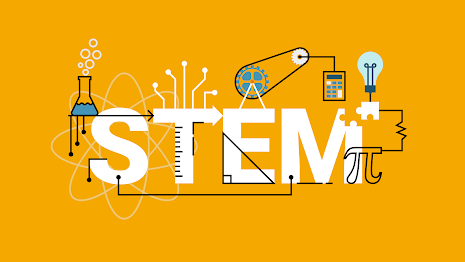Written by Syed Tahir Abbas Hasani
In today's rapidly evolving world, the fields of Science, Technology, Engineering, and Mathematics (STEM) play a pivotal role in driving innovation, solving complex problems, and shaping the future. STEM education serves as the foundation for a thriving society, empowering individuals with the skills and knowledge needed to navigate a technology-driven world. In this article, we will explore the significance of STEM education and its impact on our lives, the economy, and global progress.
STEM education encompasses a holistic approach to learning, fostering curiosity, critical thinking, problem-solving abilities, and creativity. It equips students with the tools necessary to understand, adapt to, and harness the ever-changing technological landscape. Here's why STEM education is essential. STEM fields are at the forefront of innovation. Advances in technology, medicine, and engineering have revolutionized our lives, from smartphones to life-saving medical treatments.
STEM-related industries drive economic growth. They create high-paying jobs and contribute significantly to a nation's GDP.STEM solutions are key to addressing global challenges such as climate change, energy sustainability, and public health crises.
In an increasingly digital world, STEM education imparts digital literacy, a fundamental skill for personal and professional success.STEM encourages collaboration across different fields, leading to breakthroughs at the intersection of science, technology, and more.STEM education begins at an early age and continues through all levels of schooling. It focuses on hands-on learning, experimentation, and real-world problem-solving. Key elements of STEM education include.integrating STEM subjects into a unified curriculum, highlighting their interconnectedness.Encouraging students to learn through practical experiences, like conducting experiments or building projects.Promoting critical thinking skills to analyze and solve complex problems.Ensuring that STEM education is accessible to all, irrespective of gender, race, or socioeconomic background, to tap into a diverse pool of talents.
STEM fields have profoundly shaped our society in numerous ways:
Medicine and Healthcare:
STEM has led to breakthroughs in medical treatments, diagnostics, and the development of vaccines, improving public health and extending lifespans.
Communications and Connectivity:
STEM has enabled the proliferation of the internet, connecting people globally and transforming how we communicate and access information.
Renewable Energy:
STEM research has paved the way for renewable energy sources, addressing environmental concerns and reducing our reliance on fossil fuels.
Space Exploration:
STEM has driven humanity's exploration of space, leading to technological advancements and expanding our understanding of the universe.
Innovation Ecosystem:
STEM creates an innovation ecosystem, fostering entrepreneurship and startup culture, which, in turn, generates economic growth and job opportunities.
STEM education is not just a pathway to careers in science and technology; it is a foundation for critical thinking, problem-solving, and innovation that benefits society as a whole. Investing in STEM education is an investment in our collective future, as it empowers individuals to tackle the challenges of today and pioneer the solutions of tomorrow. To ensure global progress and prosperity, it is essential that we continue to nurture the seeds of innovation through STEM education, fostering a new generation of thinkers, creators, and problem solvers. STEM education is the key to unlocking the full potential of individuals and societies, shaping a brighter and more innovative future for all.
Tags:
STEM

